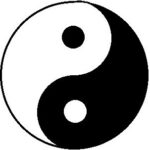 Researchers at Tufts Medical Center, in Boston reported their findings in that bastion of allopathic medicine, The New England Journal of Medicine.
Researchers at Tufts Medical Center, in Boston reported their findings in that bastion of allopathic medicine, The New England Journal of Medicine.
First, the details.
- 66 patients were randomly assigned to a treatment group to participate in 60-minute sessions twice a week for 12 weeks.
- Classic Yang-style tai chi (video here)
- A control group for wellness education and stretching (defined by American College of Rheumatology 1990 criteria).
- The primary outcome was a change in the Fibromyalgia Impact Questionnaire (FIQ) score at the end of 12 weeks.
- FIQ was developed to capture the total spectrum of problems related to fibromyalgia and the responses to therapy.
- In addition, the physical and mental components of the Medical Outcomes Study 36-Item Short-Form Health Survey (SF-36) were recorded.
- SF-36 measures limits in physical and social activities, pain, general mental health, vitality, and health perceptions.
- The patients were re-evaluated at 24 weeks to test the durability of the response.
- The evaluators were unaware of the treatment given — single-blind.
And, the results.
- At 12 weeks the tai chi group showed clinically significant improvements in FIQ total score and quality of life vs the control group.
- Physical and mental scores also improved significantly more with tai chi vs the control group.
- Improvements were maintained at 24 weeks.
- No side effects were observed.
The bottom line?
The authors concluded, “Tai chi may be a useful treatment for fibromyalgia and merits long-term study in larger study populations.”
Other CAM options for fibromyalgia are summarized here.
The study was funded by the National Center for Complementary and Alternative Medicine (NCCAM) and others.
8/30/10 22:19 JR